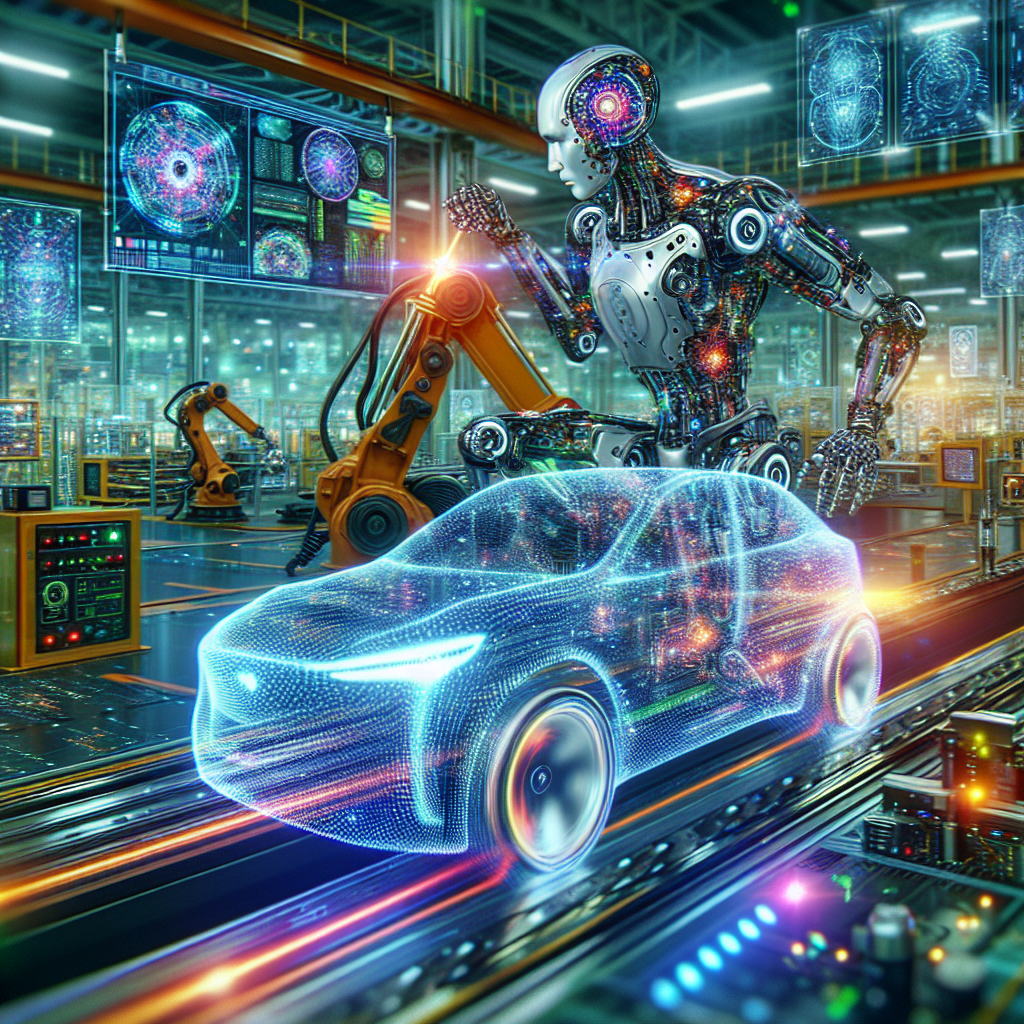AI and Autonomous Vehicles in Manufacturing
The manufacturing industry has seen significant advancements in recent years with the integration of artificial intelligence (AI) and autonomous vehicles. These technologies have revolutionized the way products are produced, increasing efficiency, reducing costs, and improving overall safety in manufacturing facilities. In this article, we will explore the impact of AI and autonomous vehicles in manufacturing and how they are shaping the future of the industry.
AI in Manufacturing
AI has transformed the manufacturing industry by enabling machines to perform tasks that were once only possible by human workers. AI algorithms can analyze data in real-time, identify patterns, and make decisions without human intervention. This has led to increased productivity, reduced downtime, and improved quality control in manufacturing processes.
One of the key applications of AI in manufacturing is predictive maintenance. AI algorithms can analyze data from sensors on machines to predict when maintenance is needed before a breakdown occurs. This proactive approach to maintenance has significantly reduced downtime and maintenance costs for manufacturers.
Another important application of AI in manufacturing is quality control. AI algorithms can analyze images of products to identify defects or anomalies in real-time. This has improved the quality of products and reduced the number of defective products that reach consumers.
AI has also enabled manufacturers to optimize production processes by analyzing data from various sources, such as supply chain data, production data, and customer demand data. This has led to more efficient production schedules, reduced inventory costs, and improved customer satisfaction.
Autonomous Vehicles in Manufacturing
Autonomous vehicles, such as self-driving forklifts and drones, have also revolutionized the manufacturing industry. These vehicles can transport materials and products within a manufacturing facility without human intervention, increasing efficiency and reducing labor costs.
One of the key benefits of autonomous vehicles in manufacturing is safety. By removing human workers from dangerous tasks, such as driving forklifts in busy warehouses, manufacturers can reduce the risk of accidents and injuries in the workplace.
Autonomous vehicles also improve efficiency in manufacturing facilities by optimizing routes and reducing idle time. These vehicles can navigate complex environments, such as warehouses with narrow aisles and obstacles, with precision and speed, leading to faster and more efficient material handling.
Furthermore, autonomous vehicles can operate 24/7, increasing productivity and reducing downtime in manufacturing facilities. These vehicles can work continuously without the need for breaks or rest, leading to a significant increase in production output.
FAQs
Q: How are AI and autonomous vehicles integrated in manufacturing?
A: AI algorithms are integrated into manufacturing processes to analyze data, optimize production schedules, and improve quality control. Autonomous vehicles are used to transport materials and products within manufacturing facilities without human intervention, increasing efficiency and reducing labor costs.
Q: What are the benefits of AI and autonomous vehicles in manufacturing?
A: The benefits of AI and autonomous vehicles in manufacturing include increased productivity, reduced downtime, improved quality control, and improved safety in the workplace.
Q: Are AI and autonomous vehicles replacing human workers in manufacturing?
A: While AI and autonomous vehicles are automating certain tasks in manufacturing, they are not replacing human workers entirely. Human workers are still needed to oversee and manage these technologies, as well as perform tasks that require human judgment and creativity.
Q: What are the challenges of implementing AI and autonomous vehicles in manufacturing?
A: Some of the challenges of implementing AI and autonomous vehicles in manufacturing include high initial costs, integration with existing systems, and concerns about data security and privacy.
In conclusion, AI and autonomous vehicles are transforming the manufacturing industry by increasing efficiency, reducing costs, and improving safety in manufacturing facilities. These technologies are shaping the future of manufacturing and will continue to drive innovation and growth in the industry.

